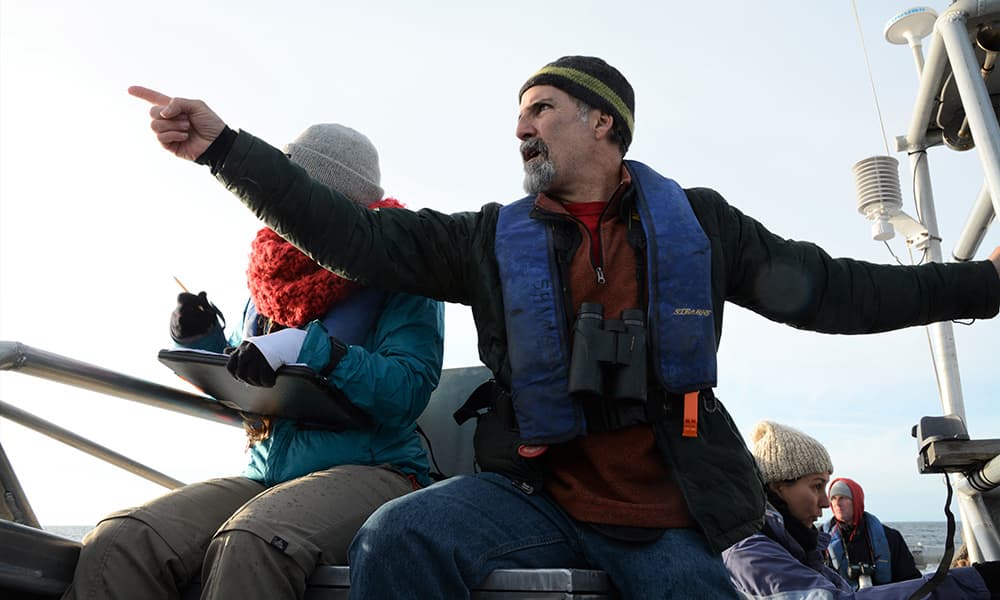Volunteer Opportunities

Join our growing team of volunteers and help sanctuary staff offer expanded programming. Volunteers provide assistance with field research programs, education and outreach events, facilities maintenance, and administrative support.
If interested in volunteering, please fill out the volunteer application form. You can also download a PDF version of the form and send it to us via email or regular mail.
Stellwagen Ambassadors: Individuals interested in working with the public help build awareness of the sanctuary by sharing information at public forums, running engaging activities at public events, including Salt inflatable whale visits, and giving presentations to community groups.
A Child's Sanctuary: Trained volunteers support or run educational events targeting pre-K through upper elementary school aged children to connect youth, their parents, and teachers to their local sanctuary.
Data Management: Individuals assist research staff in gathering scientific data from archives or in the field, manage databases, and analyze data.
Stellwagen Sanctuary Seabird Stewards (S4) Program: Experienced birders and data recorders who are comfortable on the open water and can follow basic protocol support our seabird research and monitoring program in collaboration with Mass Audubon. This is one of the sanctuary's premier citizen science programs.
Marine Mammal Observers: Trained spotters look for marine mammals during sanctuary vessel operations to prevent accidental strikes.
Media Support: Volunteers help review raw video footage and image archives for exceptional images, digitize images, and help organize and retrieve images.
Photography, Videography, and Art: Photographers, videographers, and artists contribute publication-quality images and help document sanctuary programs.
Liaison/Distribution Support: These volunteers help maintain displays of sanctuary program information and literature.
Facilities: Volunteers with backgrounds in skilled trades, such as carpentry or vessel maintenance, help on projects to improve and expand sanctuary facilities.
Education: Volunteers with teaching backgrounds, marine science backgrounds, and writing skills help develop curricular materials for schools, outreach programs, and the sanctuary website.
Communications/Social Media: Individuals with an interest in communicating with the public help develop content for sanctuary publications, web pages, and social media outlets.
Student Projects: The sanctuary works with individual students and groups from elementary schools through universities, offering internships, community service projects, and other partnership opportunities.
Sanctuary Advisory Council (SAC): Volunteers from non-governmental organizations and the general public serve with government representatives on the council, which is the formal organizational link to the sanctuary's user community. The council includes a youth member, three at-large members, and alternates for all seats.

